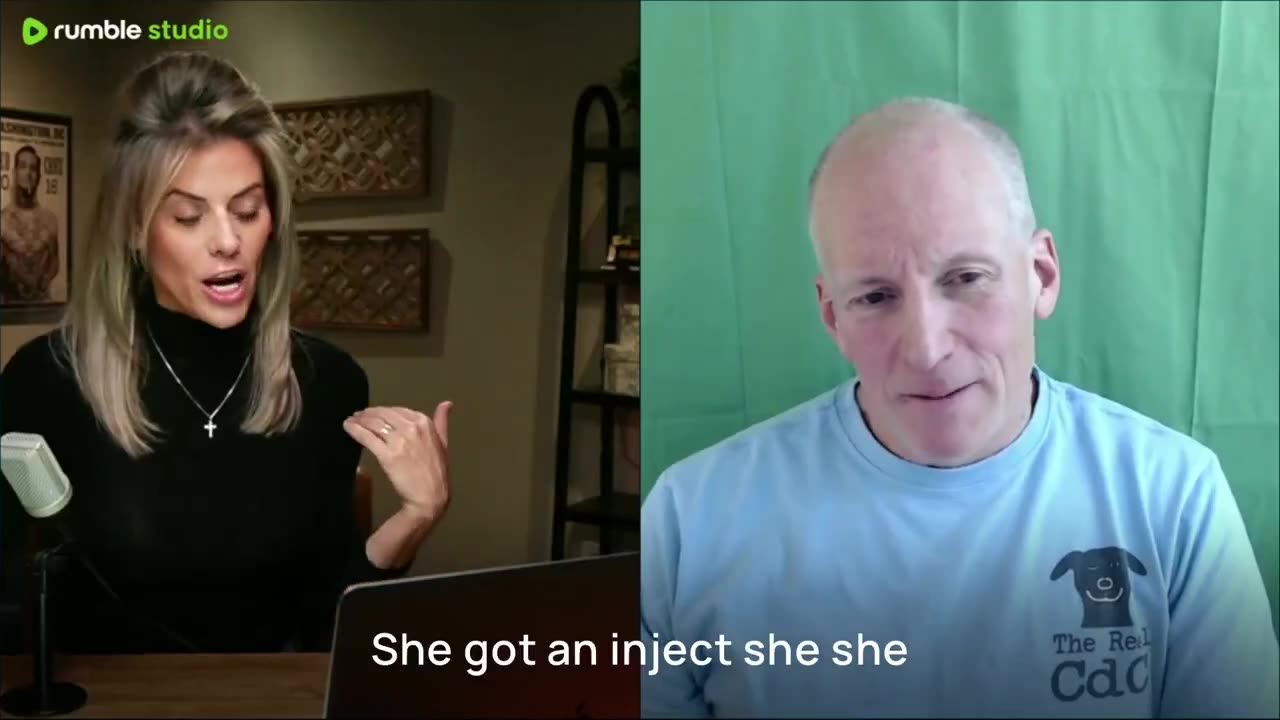Premium Only Content

SV40 in Pfizer Vaccine: Turbo cancers and tumors that resulted
Link: https://x.com/SenseReceptor/status/1858564130552397913
Full Show: https://rumble.com/v5oognn-live-exclusive-with-john-beaudoin.html
Partial Transcript:
Kevin is the one who found the simian virus 40 promoter, which is a little plasmid. Well, he found he found DNA contamination in the Pfizer vaccines. This was corroborated by Philip Buckhaults down in North Carolina and people in Canada and Europe. It is now known the SV40 is in there. The SV40 is known to be
meaning it causes cancers.
"I also found out that it's also, cancers in general are angiogenic, meaning they create blood vessels to feed whatever tumors created as the cancer. But there are two aspects of the turbo cancer. One is the fact that the
incidence rate of cancer is higher. There are more cancers in general in people, and there are more
cancers in an individual person that are cause being caused. But a second thing is that they're growing much faster than they ever have. That's that's different. They haven't seen anything like this.
"But you can't grow something really fast without angiogenesis. You need a blood supply to it. It can't just absorb the nutrients from the surrounding tissue and grow that fast. Okay. And, yes, angiogenesis occurs
in cancer anyway, but not to this rate. And I showed that
by showing, uh, it's also occurring with lipomas, which are fatty tumors, which are benign. They're not malignant cancers. Those are also growing really fast
and something called granulation tissue, which occurs in wound repair. So granulation tissue is growing wicked
fast, and I show a couple of really ugly pictures of,
um, tissue popping out the injection sites on both deltoids. 92 year old woman, within 5 months, those things grew, um, 4 centimeters by 1 4 centimeters around and 1 centimeter thick on the outside of her arm.
They grew out of a hole in her arms at the injection
site to these massive tumors. They're not tumors that granulations. And they were at the injection site. Now what causes that? The SV40 is involved in angiogenesis as well as oncogenesis.
-
 1:30:30
1:30:30
Game On!
18 hours ago $7.48 earnedTop 5 things you need to know for Sports Christmas!
59.3K4 -
 1:58:10
1:58:10
Robert Gouveia
1 day agoMatt Gaetz REJECTS Report, Sues Committee; Luigi Fan Club Arrives; Biden Commutes; Festivus Waste
284K224 -
 1:31:40
1:31:40
Adam Does Movies
1 day ago $15.68 earnedThe Best & Worst Christmas Movies! - LIVE!
109K8 -
 58:10
58:10
Kimberly Guilfoyle
1 day agoAmerica is Back & The Future is Bright: A Year in Review | Ep. 183
198K74 -
 3:03:27
3:03:27
vivafrei
1 day agoEp. 242: Barnes is BACK AGAIN! Trump, Fani, J6, RFK, Chip Roy, USS Liberty AND MORE! Viva & Barnes
270K256 -
 2:05:48
2:05:48
2 MIKES LIVE
10 hours agoTHE MIKE SCHWARTZ SHOW with DR. MICHAEL J SCHWARTZ 12-24-2024
41.4K5 -
 1:14:17
1:14:17
MTNTOUGH Fitness Lab
1 day agoNavy SEAL Dom Raso: The Cold, Hard Truth About Modern Brotherhood | MTNPOD #96
31.7K4 -
 43:42
43:42
Dad Dojo Podcast
1 day ago $0.89 earnedEP14: Every Girl Dad's Biggest Fear and How To Prevent It
21.7K -
 55:06
55:06
Bek Lover Podcast
19 hours agoWill Trump Pull Off A Miracle? Other Strange News Podcast...
18.8K23 -
 55:53
55:53
PMG
1 day ago $0.64 earned"Hannah Faulkner and Courtney Reed | BEHIND THE LENS OF A TRUMP PHOTOGRAPHER"
14.7K